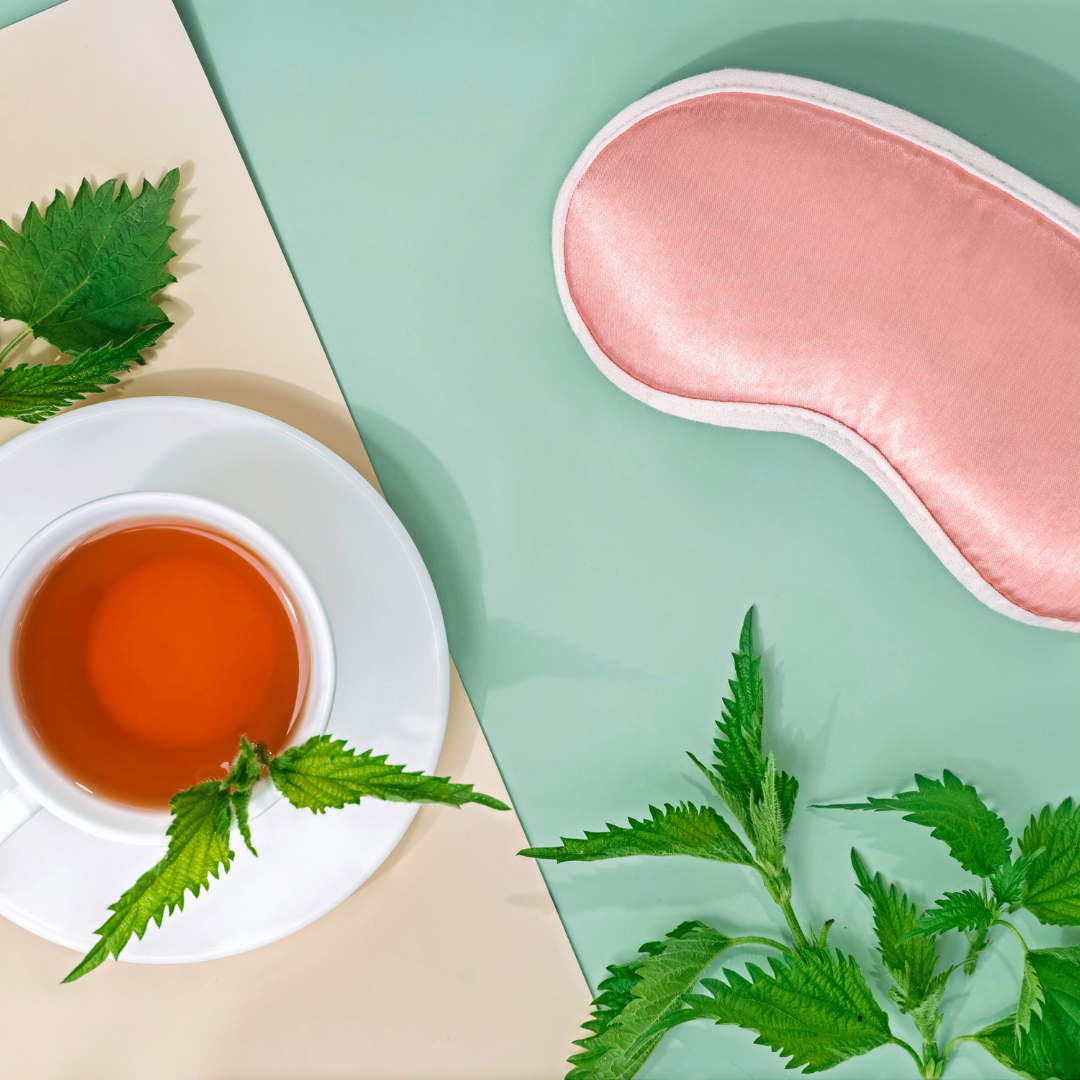Many people struggle with sleep, often seeking natural solutions to promote relaxation and improve their rest. Herbal teas, such as chamomile, valerian root, and lavender, are known for their calming properties, making them excellent choices for enhancing sleep quality. Incorporating these teas into an evening routine can create a peaceful ambiance, allowing the mind and body to unwind.
Research has shown that specific herbal ingredients can help regulate sleep patterns and alleviate anxiety. Chamomile, for example, is renowned for its soothing effects, while valerian root has been used for centuries to aid in falling asleep faster. By understanding which herbal teas contribute to better sleep, individuals can make informed choices that support their nightly routines.
As the search for restful sleep continues, herbal teas offer a simple yet effective approach. Enjoying a cup of tea before bed may provide the relaxation needed to drift off peacefully, making it a valuable addition to any nightly ritual.
How Herbal Teas Support Better Sleep
Herbal teas possess unique qualities that aid in relaxation and enhance sleep quality. By understanding their calming properties and caffeine-free nature, individuals can choose the right options for managing insomnia and promoting a better night’s rest.
Natural Compounds and Calming Properties
Many herbal teas contain natural compounds known for their calming effects. For example, chamomile tea features apigenin, which binds to brain receptors that induce sleepiness. Similarly, valerian root is recognized for its potential to reduce anxiety and promote relaxation.
Lemon balm is another herbal option that may help alleviate stress and improve sleep quality. The combination of these herbs can create a soothing experience, making it easier for individuals to unwind at bedtime. Selecting teas with these specific compounds can optimize the relaxation process.
Impact on Sleep Quality and Insomnia
Studies suggest that certain herbal teas can positively impact sleep quality. For instance, research indicates that consuming valerian root tea can shorten the time needed to fall asleep and enhance deep sleep cycles.
Additionally, chamomile tea is often recommended for those struggling with insomnia. Consuming these herbal teas before bedtime may lead to improved overall sleep patterns. Regular intake can result in fewer nighttime awakenings and increased feelings of restfulness upon waking.
The Importance of Caffeine-Free Choices
Selecting caffeine-free herbal teas is crucial for promoting better sleep. Caffeine stimulates the central nervous system, which can interfere with the body’s natural sleep-wake cycle. Herbal teas such as passionflower and nettle are naturally caffeine-free and provide an excellent choice for evening consumption.
Making mindful beverage choices is essential for individuals looking to enhance their sleep. A caffeine-free herbal tea routine can help signal to the body that it is time to relax and prepare for sleep, ultimately contributing to a more restful night.
Top Herbal Teas That Promote Restful Sleep
Several herbal teas are known for their ability to enhance sleep quality. These teas not only help individuals relax but also may improve overall sleep patterns. Here are three popular options.
Chamomile Tea Benefits
Chamomile tea stands out as a common choice for promoting better sleep. This herbal tea contains antioxidants that bind to certain receptors in the brain. It can help reduce anxiety and initiate sleep.
Drinking chamomile tea before bedtime has been linked to improved sleep quality. A study showed participants experienced a significant increase in sleep duration after consuming chamomile. Additionally, its mild sedative properties can soothe the mind and body, promoting a peaceful night’s rest.
Valerian Root and Valerian Tea
Valerian root has gained popularity as a natural remedy for insomnia and sleep disturbances. Many people consume valerian tea to harness its calming effects on the nervous system. This herb works by increasing levels of gamma-aminobutyric acid (GABA), a neurotransmitter that promotes relaxation.
Research indicates that valerian tea can improve sleep quality. Users often report falling asleep faster and experiencing deeper sleep. For those struggling with chronic sleep issues, valerian tea may provide a gentle solution without the side effects associated with conventional sleep medications.
Lavender Tea and Its Effects
Lavender tea is well known for its soothing aroma and calming effects. This herbal tea is often used to relieve stress and anxiety, contributing to better sleep quality. The presence of linalool and linalyl acetate compounds in lavender has been shown to reduce anxiety levels.
Consuming lavender tea before bed may also enhance sleep duration. Studies have indicated that inhaling lavender essential oil can improve sleep, and consuming it as tea offers similar benefits. This gentle herbal infusion can create a serene environment, promoting relaxation and restful nights.
Additional Sleep-Enhancing Herbal Teas
Several herbal teas are known for their sleep-enhancing properties. These drinks can promote relaxation and improve sleep quality. Below are notable options to consider.
Lemon Balm and Verbena
Lemon balm is a member of the mint family and is often used to alleviate stress and anxiety. Studies suggest that this herb may improve sleep quality by reducing insomnia symptoms.
Verbena, specifically lemon verbena, complements lemon balm with a calming aroma and flavor. The combination of these herbs in a tea can create a soothing experience, making it easier for individuals to wind down before bedtime.
Preparation Tip: Combine equal parts of dried lemon balm and lemon verbena. Steep for 5-10 minutes for the best results.
Peppermint Tea
Peppermint tea is particularly known for aiding digestion, but its calming properties can also support better sleep. It contains menthol, which can help relax muscles and relieve tension.
The aroma of peppermint is highly soothing, promoting a sense of comfort, especially in the evening. While it doesn’t directly induce sleepiness, its relaxation effects can lead to a more restful night.
Preparation Tip: Use one tablespoon of dried peppermint leaves per cup of boiling water. Steep for 7-12 minutes to maximize flavor and benefits.
Rooibos and Other Unique Blends
Rooibos tea is caffeine-free and packed with antioxidants, making it an excellent choice for nighttime. It’s naturally sweet and earthy flavor attracts those looking for alternatives to traditional nighttime teas.
Combining rooibos with other soothing herbs can create a unique blend. Ingredients like chamomile, vanilla, or lavender can enhance relaxation even further.
Preparation Tip: Combine rooibos with other herbs like chamomile in equal ratios. Steep for 5-8 minutes for an enjoyable, sleep-supporting beverage.
Passionflower and GABA-Boosting Teas
Passionflower is renowned for its ability to reduce anxiety and promote calmness. It is often used in teas designed for those struggling with sleep issues.
Teas containing passionflower may support the natural production of gamma-aminobutyric acid (GABA), a neurotransmitter that helps regulate sleep cycles. This connection aligns passionflower as a strong candidate for enhancing sleep.
Preparation Tip: Steep one to two teaspoons of dried passionflower in hot water for 10-15 minutes to extract its calming properties effectively.
Tips for Incorporating Sleep Teas Into Your Evening Ritual
Incorporating sleep teas into an evening ritual can enhance relaxation and improve sleep quality. Establishing a consistent routine can address sleep disorders and mitigate anxiety, creating a calming environment conducive to rest.
Timing and Preparation Best Practices
Choosing the right time to enjoy sleep tea is crucial. Ideally, it should be consumed 30 to 60 minutes before bedtime. This allows the body to prepare for sleep without feeling rushed.
Warm water is recommended for steeping herbal teabags, typically for 5 to 10 minutes. Using a timer can help ensure the tea reaches its optimal flavor without becoming bitter. Additionally, keep the tea in a comfortable mug to sip slowly—this encourages mindfulness as the body transitions towards rest.
Creating a Relaxing Bedtime Routine
A calming bedtime routine helps signal to the body that it’s time to wind down. Incorporating sleep teas into this ritual can enhance the overall effect.
She can dim the lights and engage in soothing activities, such as reading or journaling, while sipping her tea. Aromatherapy with essential oils like lavender can complement the experience. It’s important to keep screens away to reduce blue light exposure, which can disrupt sleep.
Pairing With Sleep-Promoting Habits
Sleep teas work best when complemented by healthy sleep habits. Establishing a consistent sleep schedule supports the body’s natural circadian rhythms.
Incorporating light stretching or meditation can also promote relaxation and decrease anxiety levels. Limiting caffeine and heavy meals in the evening can prevent sleep disturbances.
Lastly, creating a sleep-conducive environment, like a cool, dark room, will enhance the effectiveness of herbal teas for better sleep.


